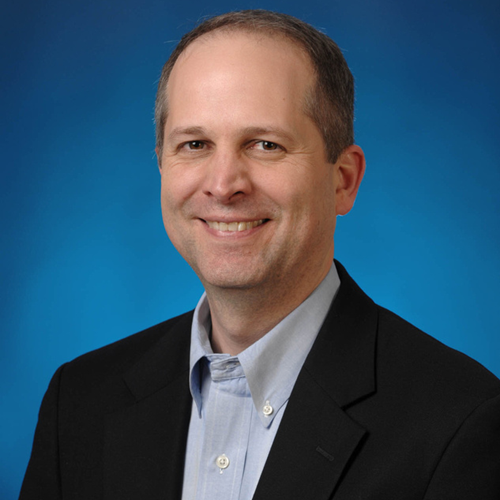Sandra Wiley, President of Boomer Consulting, Inc., is a leader in the accounting profession with a passion for helping firms grow, adapt, and thrive. She is regularly recognized by Accounting Today as one of the 100 Most Influential People in Accounting as a result of her expertise in leadership, management, collaboration, culture building, talent and training.
Sandra and I had the opportunity to speak about leadership and advisory services on the Scaling New Heights Podcast. Here is a transcript of our conversation. (Part 2)
Joe: I want to shift gears a little bit to a connected topic. Culture is one of the best ways to attract and retain exceptional team members. However, at Woodard, we've done our own polling and we've read other organizations’ polling. Across the board, the industry is telling us as thought leaders that talent acquisition and retention is our biggest struggle. Firms are trying to recruit from other firms, and sometimes this is even referred to as a war for talent. What advice do you have for the audience on both the retention and acquisition of exceptional talent?
Sandra: I believe struggling will continue in years ahead. I don't believe it will subside, but I do think there are four basic steps.
First, hang on to the great team members you have. It's similar to business development. You want to ensure that you are plugging the holes that people are leaving and finding new people. I'm fearful that in our profession we're excelling at recruitment. We're going out and trying to find great people. But we're not doing as well at doing what we must to hang on to the best and the brightest.
Second, let go of team members that do not fit in your organization right now. We tend to hang on to everybody because we're worried about finding new people. However, they are creating a cancer within the firm and taking down other people. Be kind but be firm. Know that those people are not working out and let them go sooner.
Joe: Before you get to the third one, can I throw something in there? We often think that we should retain someone who is effective or productive. But we also need that person to be the right fit for the direction, culture, vision and purpose of our firm.
I have a good example of this. We had a great leader of our network named Katherine White. She was one of our best team members. She fit our culture. She was one of the most productive people in our organization. The Woodard Alliance grew under her leadership, but she sat in on some of my teaching about why.
She did her own exploration of her own vision, mission, and purpose and found out that her life goals were not aligned with my organization. She wanted to go back into early childhood education and leave adult education. She and a teacher friend of hers started a charter school in north Atlanta that is creating highly innovative learning techniques for small children. She's happy. She's where she needs to be. She self-selected out, but under all the traditional standards of retention, I would have tried to keep her when she didn’t fit. That's where the culture becomes both a motivator and a filter for having the right team.
Sandra: I appreciate you sharing that story. In that case, she identified that she wasn’t a good fit and chose to leave.
On the other hand, sometimes we feel bad that we're letting people go, because we worry that we're hurting their feelings. The reality is that if they don't fit your culture or with the team, then we're doing them a disservice by hanging on to them too tightly. They are not able to find their passion and what they need to be doing. You should change your mindset to recognize that what you are doing is helping people find their passion.
I think we have to step up our recruiting. Regardless of the size of your firm, it needs a full-time presence. When someone is looking for a job, they come to your community. They're online looking for a new opportunity. They're not going to look through the white pages or the yellow pages anymore. They're looking online, and they're going to look when they need to look. It may not be at exactly the same time that you're needing someone, but you want to be readily available and out there front and center for them.
You must step up your recruiting, and then refer to the question about culture that we just discussed. If you have a culture that attracts great people, then they will come to you. You won't have to do a ton of recruiting. You won't have to be everywhere. If your culture is great and there's something wonderful about you, then your team will start talking about you. Your team will bring in the best people. Make sure your culture is spot-on. When I think about the war for talent, those are the four things you need to work on.
Joe: I couldn't agree more. I want to shift gears a little bit to this concept of client advisory services. Some people call it trusted advisory services. I'm not a big fan of either of those terms, because of overuse. So many people have inferred and interpreted so many things that it's become nebulous.
I love how you guys at Boomer call this being “agents of small business transformation.” I’ve begun calling it Transformative Advisory work. Whatever you call it, the idea is to move beyond the books and make a difference to your client's business. You coach them, guide them, help them to succeed. It's a big step from compliance to that. Do you have suggestions on why someone should take the leap? What would help an advisor to go ahead and step into those deep waters?
Sandra: If you're not already starting to go in this direction, you are woefully behind. I would encourage everyone out there to look at your practices, learn and teach how to have deep and meaningful conversations with your clients. This is not about behind-the-scenes work. Of course, that must be done. But the reality is a lot of that is already automated and will become more automated soon.
If you don't have a sales system or sales training program in place today, find one. There are many great systems and processes that will teach you how to have the conversations. They'll teach you how to track the leads. They'll teach you how to ask the right questions to get to a deeper place with your clients and develop new services. If you haven't found them yet, I encourage you to do that.
Joe: There are programs. I want to start, of course, by talking about Woodard Institute, because it offers training specifically designed to transform your practice and designed to transform your small business clients, including how to conduct those difficult sales conversations. We also offer these courses at Scaling New Heights.
Look for conferences and courses that offer practical, in-depth techniques and practical guidelines on how to do it, not just sessions on what and why with some motivation.
You may be thinking, "Wait a minute. We just took a big step from being an agent of small business transformation to learning how to sell." I want to connect the dots for you. If you can't communicate the value that you bring, you can never bring the value. It is a critical first step to becoming that agent of small business transformation.
Unfortunately, we hold the knowledge and conviction that can bring change to a client very deep inside of us. It’s mostly because we’re introverted or because we fear that the client is going to feel like we’re pushing our services upon them. Training is going to help you get past that fear and get to the heart of how to communicate your value.
Sandra: I love that. Thank you. How crazy of me not to mention Woodard Institute. I appreciate your doing that because we hear wonderful things about it. From anybody who has gone, they are exceptionally happy. They find huge value. I just want to make sure I say that.
.png?width=150&height=63&name=TWRlogo-regmark_blueblack%20(1).png)
.png)










Do you have questions about this article? Email us and let us know > info@woodard.com
Comments: